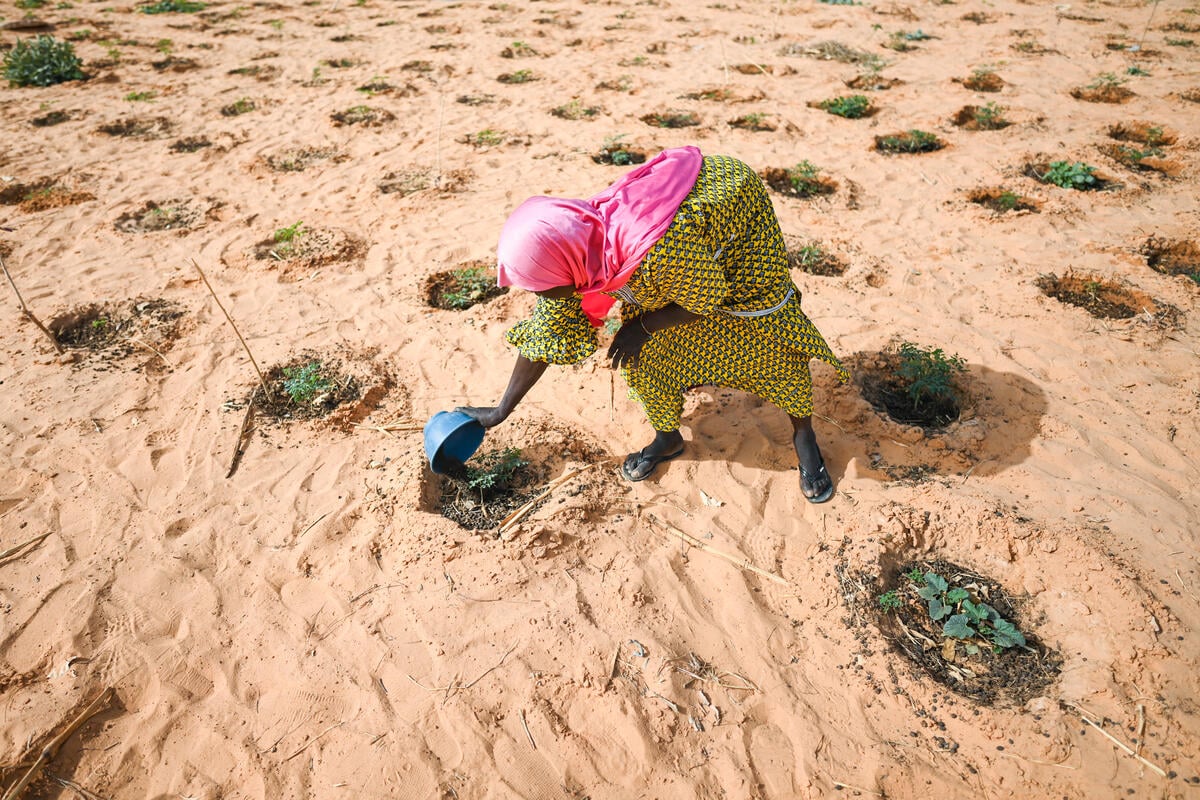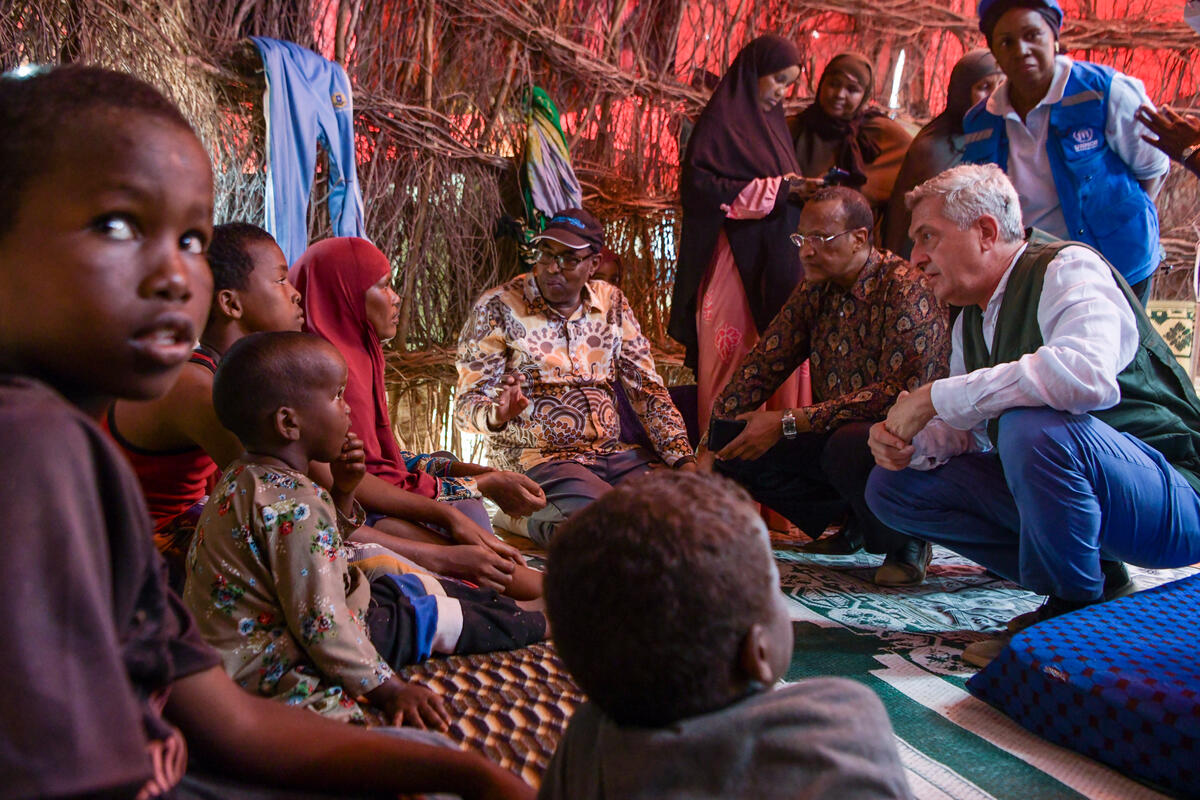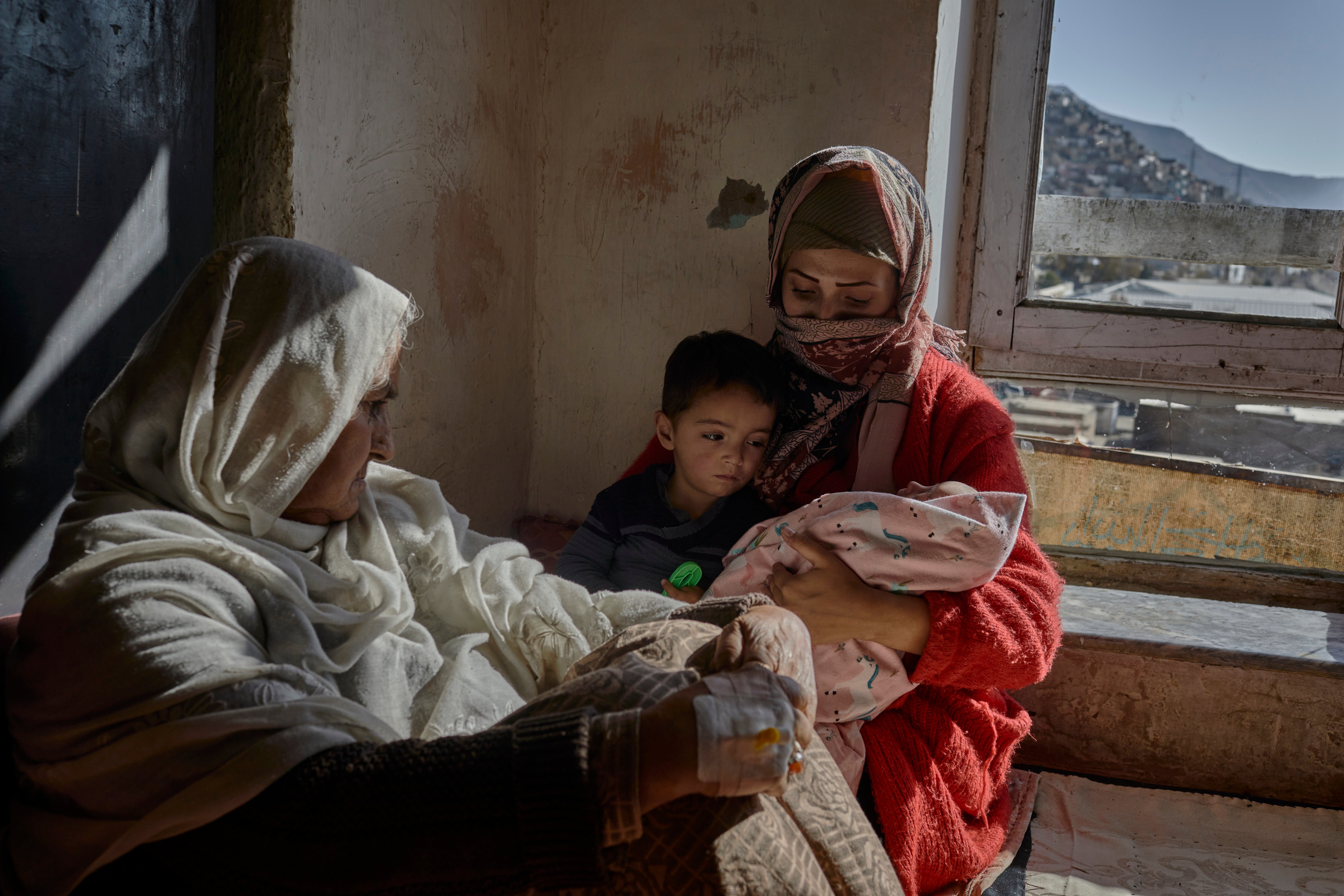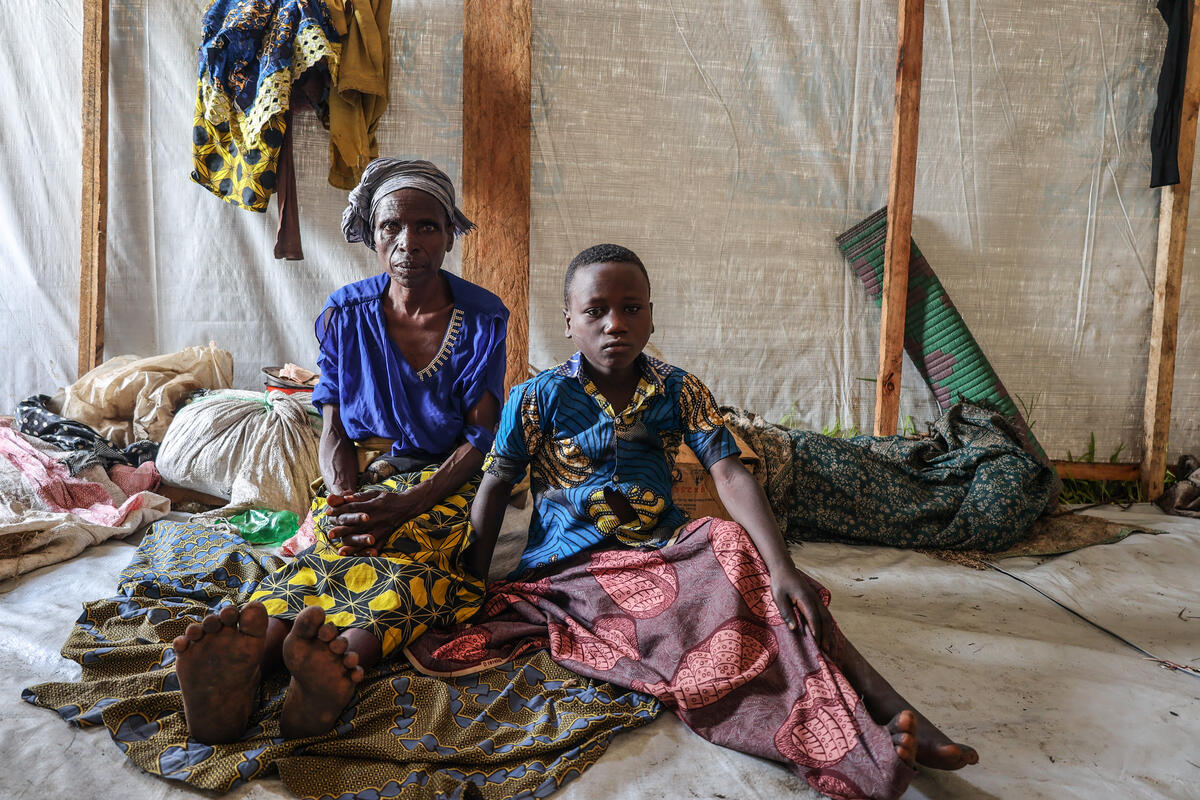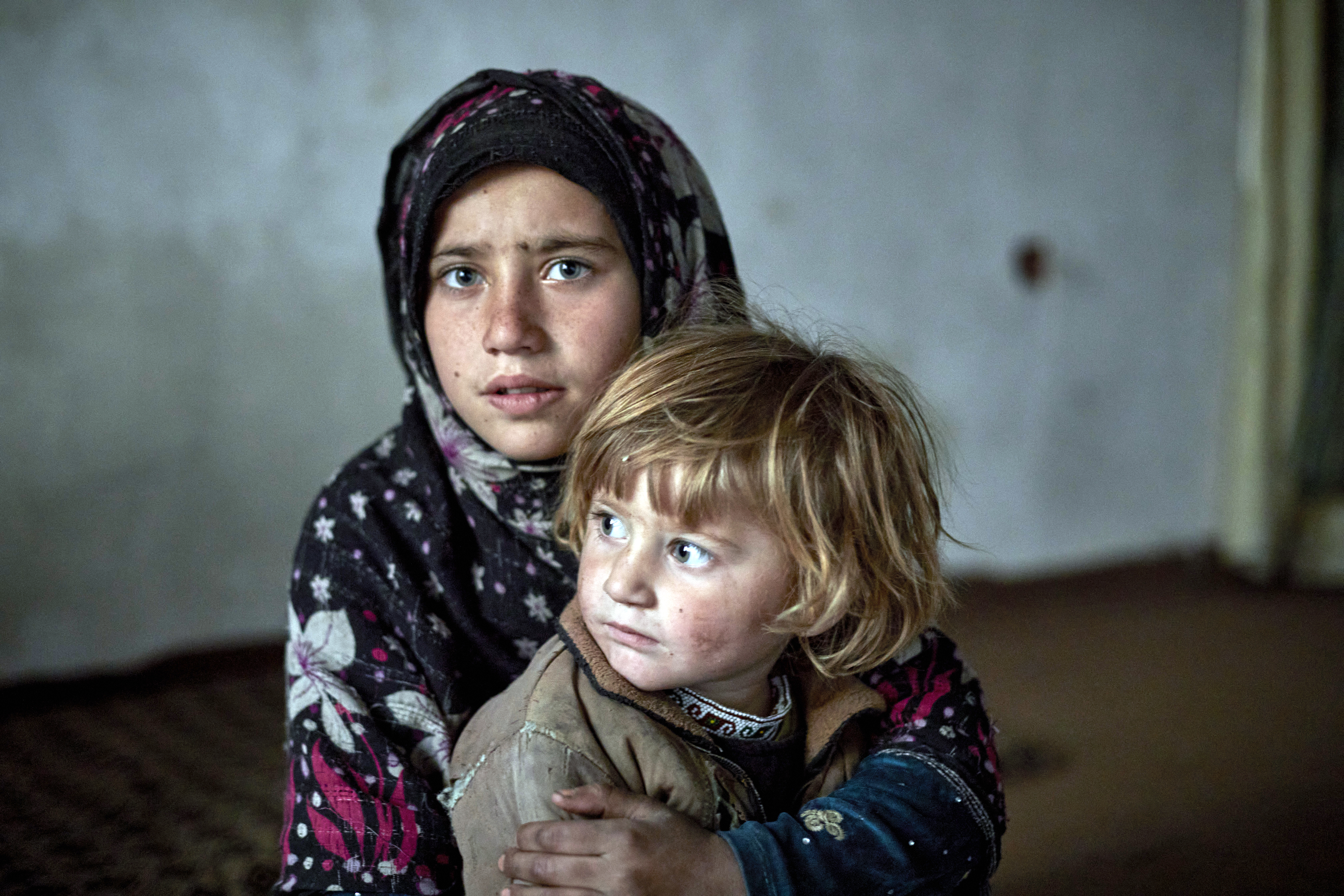Fighting approaches Ivorian camp, but refugees denied relocation
Fighting approaches Ivorian camp, but refugees denied relocation
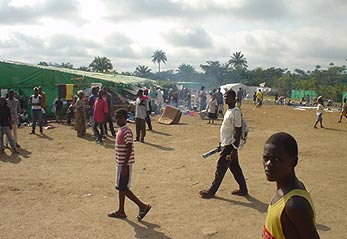
GUIGLO, Côte d'Ivoire, Jan 7 (UNHCR) - As rebel fighting approaches western Côte d'Ivoire's Nicla camp, the UN refugee agency's plans to evacuate 5,000 refugees hosted there have suffered a setback, with the proposed relocation site falling through over the weekend.
Nicla, the only camp run by UNHCR in Côte d'Ivoire, is situated on the southern outskirts of Guiglo town, currently some 10 km from the shifting frontlines of rebel fighting. On Monday, new attacks on French positions and in Grabo, further south near Tabou, brought the conflict closer to the camp, increasing fears among the refugee population about a possible attack as rebels move southwards.
Before fighting broke out in the area, Nicla camp hosted some 5,000 refugees who were considered particularly vulnerable because of their ethnicity and known opposition to the Liberian regime. The camp population is believed to have grown in recent weeks as other refugees from surrounding villages sought safety there. At the same time, some refugees may have left the camp, fearing it could become a target.
A safer alternative site for Nicla's refugees had been proposed at Grand Lahou, an Ivorian town on the Atlantic coast west of Abidjan. But over the weekend, local residents rejected the idea of relocation on their soil, citing security reasons. UNHCR has said it will continue to seek alternative sites within and outside of Côte d'Ivoire.
"Obviously, we hope that the latest peace initiatives will bear fruit, while appealing to all parties to respect refugees and guarantee their safety in Nicla and in the areas of spontaneous settlement," said UNHCR spokesman Kris Janowski at a press briefing Tuesday in Geneva.
While Nicla's refugees are UNHCR's most immediate concern, the agency is trying to relocate the entire refugee population in Côte d'Ivoire - numbering 70,000 before the crisis first started in September - to safer locations. Most of the refugees are spontaneously settled in villages and communities throughout the country.
The UN refugee agency is also appealing to neighbouring countries to grant temporary asylum to some groups of Liberian refugees presently in Côte d'Ivoire. Since the conflict spread to western Côte d'Ivoire in mid-November, 58,000 people have fled to Liberia and 3,000 to Guinea.
Among the recent arrivals in Liberia - averaging more than 300 a day - 35,000 were Liberians fleeing western Côte d'Ivoire. An estimated 50,000 to 60,000 Liberians remain in the Ivorian combat zone.
In Liberia, some new arrivals say security forces and border guards extorted money or goods from them. Those who could not pay were asked to perform tasks like cleaning or carrying wood before they were allowed to cross the border. The refugees also report that many more people have been prevented from leaving Côte d'Ivoire due to military exercises along the border with Liberia.
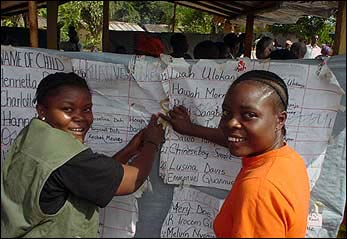
Of the 20,000 new Ivorian refugees in Liberia, only an estimated 5,000 are in transit centres. The remaining 15,000 have chosen to live in small villages near the border, where insecurity is rife and where UNHCR has been unable to provide assistance or protection due to poor road conditions.
"The Liberian authorities and UNHCR have encouraged the refugees to move to villages deeper inside the country, but they prefer to stay with communities of similar background, for fear of being treated harshly," said Jo Hegenaur, the refugee agency's emergency co-ordinator in eastern Liberia.
Among Liberia's new arrivals are also 3,000 nationals of other West African countries, including people from Ghana, Guinea, Mauritania, Mali and Niger. Many of them have no identification documents and have expressed a wish to travel to Ganta, from where they hope to enter Guinea en route to their home countries.

